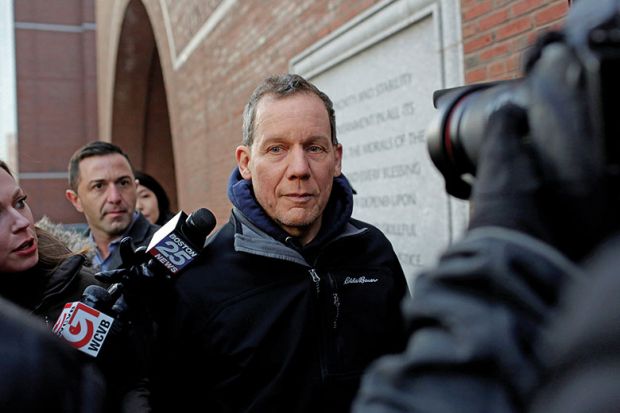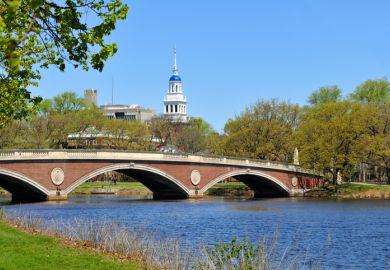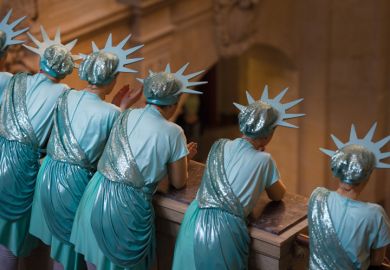US scientists are pulling back from ties with China, viewing the arrest of Harvard University’s Charles Lieber as a sign that the federal crackdown on overseas research collaborations is escalating aggressively and unpredictably.
Professor Lieber, chair of Harvard’s chemistry department, appeared in federal court in Boston last week wearing chains around his ankles and was ordered to post a $1 million (£760,000) bond after being accused of concealing and lying about his research activities in China.
Federal prosecutors have accused the nanoelectronics expert of failing to disclose a $1.5 million research partnership with China’s Wuhan University of Technology, and of lying about his involvement with the Thousand Talents programme, a Chinese government-funded effort to recruit top scientists.
Yet his partnership with the Wuhan institute had been publicly reported at the time of its establishment in 2013. A Harvard spokesman, while declining to comment on the case, said he could not explain the reported suggestion by federal prosecutors that Harvard was not aware of the Wuhan relationship until 2015. Harvard has placed Professor Lieber on indefinite paid leave while it investigates.
Such uncertainties are fuelling concern about how aggressively federal prosecutors are choosing to interpret US academic interactions with Chinese partners.
“I’m not sure what the problem is,” said Pierre Ferdinand Poudeu, associate professor of materials science and engineering at the University of Michigan-Ann Arbor. “This is kind of too close to what a university researcher is supposed to be doing.”
“It’s sad to hear situations like these,” said Ctirad Uher, a professor of physics at Michigan, “because this all started probably 10 or 15 years ago when these interactions were strongly encouraged by the previous administration.”
“Now, it’s not as favourably viewed,” continued Professor Uher, who worked in recent years with the Wuhan university on renewable energy technologies.
Under the Trump administration, officials from the FBI and other government agencies have been visiting US university campuses to warn researchers of China’s efforts to steal their secrets and to encourage the institutions to hunt for any undeclared ties with China among their faculty.
But until the arrest of Professor Lieber, that effort had seemed to be aimed largely at foreign nationals or ethnic Chinese on US campuses.
Dr Poudeu, a developer of advanced semiconductor technology, said he would stop making regular trips to China in light of Professor Lieber’s arrest.
He said he has received relatively little from the Chinese – just enough to cover his travel and hotel costs – and believed that he had completed all the mandatory disclosure forms properly. But the threat of a paperwork mistake becoming criminalised was worrying, he said.
“This arrest is kind of a new thing for us,” Dr Poudeu said.
According to Professor Uher, the federal government’s tough enforcement was creating a net loss for the US. Already, a number of his accomplished former students from China have returned home “because they couldn’t find appropriate positions in the United States”, he said.
Although Michigan’s formal partnership with the Wuhan University of Technology has ended, Professor Uher said he had continued with mutually beneficial exchanges of information and paper-writing with his counterparts at Wuhan.
“If an order comes that we cannot have any links, well, I will salute and listen, and that will be it,” he said. “What can I do?”
“It’s unfortunate this is going to all finish,” Professor Uher added. “Because I don’t necessarily view science as being US science, China science, German science or whoever’s science – science is universal.”
POSTSCRIPT:
Print headline: FBI arrest of Harvard scientist stokes US researchers’ fear of China ties
Register to continue
Why register?
- Registration is free and only takes a moment
- Once registered, you can read 3 articles a month
- Sign up for our newsletter
Subscribe
Or subscribe for unlimited access to:
- Unlimited access to news, views, insights & reviews
- Digital editions
- Digital access to THE’s university and college rankings analysis
Already registered or a current subscriber? Login








